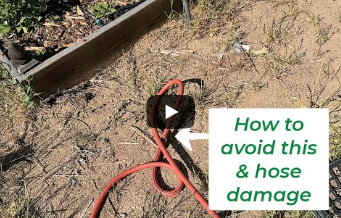Introduction: Mulch vs. Compost – A Gardening Dilemma Unraveled
Mulch & compost can work together to create a thriving garden
Gardening enthusiasts often find themselves pondering one of the most common queries surfacing on online gardening forums and websites: Should I use mulch or compost? Both mulch and compost are essential components of a thriving garden, each playing a unique role in plant health and soil improvement. Understanding the distinctions and benefits of each can significantly enhance your gardening success. This guide aims to demystify mulch and compost, detail their differences, and discuss how they can work together to create an organic and sustainable garden.
What is Mulch?
Mulch refers to any material that is spread or laid over the surface of the soil as a covering. It is used to retain moisture in the soil, suppress weeds, keep the soil cool, and make the garden bed look more attractive. Mulches can be organic or inorganic, but organic mulches such as wood chips, straw, and leaves also help improve the soil’s fertility as they decompose.
The primary purpose of mulching is protective. By creating a barrier between the soil and the air, mulch minimizes water evaporation from the soil, thereby reducing the need for frequent watering. It also prevents weed seeds from reaching the soil, which decreases the likelihood of weed growth. Additionally, during colder months, mulch serves as an insulating layer for the soil, protecting plant roots from extreme temperatures.
What is Compost?
Compost, on the other hand, is decomposed organic matter that enriches the soil. It is often referred to as “black gold” among gardeners due to its rich nutrient content and its ability to improve soil structure. Compost is created through the natural process of recycling decomposed organic materials like leaves, vegetable scraps, and manure. This rich, earthy material is full of essential nutrients that can help increase soil fertility and encourage healthy plant growth.
The role of compost in gardening extends beyond merely adding nutrients; it also enhances the soil’s ability to hold onto those nutrients and improves soil structure. This improved structure enhances soil aeration, which benefits plant roots and allows for better water drainage. Compost also introduces beneficial microorganisms that help suppress plant diseases and pests.
Differences Between Mulch and Compost
While both mulch and compost are vital for a healthy garden, they serve distinctly different purposes:
- Purpose: Mulch is primarily used to protect the soil, whereas compost is used to nourish it.
- Placement: Mulch is applied on top of the soil surface to act as a barrier. Compost can be mixed into the soil to improve its quality.
- Composition: Mulch can be made from a variety of organic or inorganic materials, which may or may not decompose. Compost is exclusively decomposed organic matter.
- Benefits: The benefits of mulch include moisture retention, temperature regulation, and weed suppression. Compost’s benefits revolve around improving soil fertility, structure, and enhancing microbial activity.
Master Gardener Tip: using both compost and mulch at the right time of the season in your garden will pay huge dividends. If you use organic mulch, the bottom layer essentially turns into decompose matter that will add to the organic value of your garden, and provide nutrients in the following season.
Mulch and Compost in Organic and Sustainable Gardens
In the context of organic and sustainable gardening, both mulch and compost play crucial roles. Organic gardening emphasizes the use of natural materials and processes to grow healthy plants without synthetic chemicals. By using organic mulch and compost, gardeners can reduce their environmental footprint while recycling waste materials into valuable gardening resources.
Mulch and compost work synergistically to improve garden health. Compost feeds the soil and plants with nutrients, while mulch conserves water and controls weeds, reducing the need for chemical herbicides and excessive watering. Together, they create a dynamic system that not only supports robust plant growth but also promotes a healthier ecosystem within the garden.
Conclusion
Understanding the roles and benefits of mulch and compost can dramatically improve your gardening practices. Whether you are looking to enhance soil fertility, conserve water, or support sustainable practices, these essential gardening components are invaluable. By integrating both into your garden, you can enjoy the dual benefits of a protected and nourished garden that thrives season after season.












You must be logged in to post a comment.